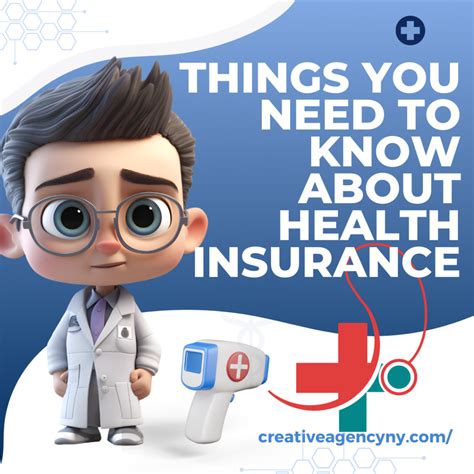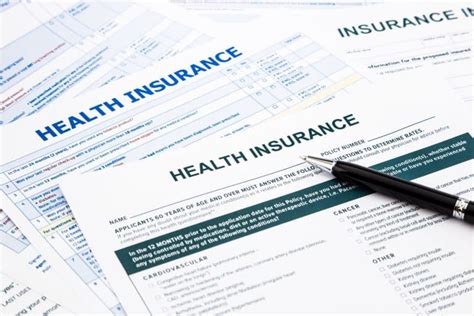Do I Need Medical Insurance

When it comes to personal well-being and financial security, medical insurance is a crucial aspect to consider. The decision to obtain medical insurance is an important one, impacting both your health and your finances. This article aims to provide a comprehensive guide, exploring the key factors that can help you determine whether medical insurance is a necessity for you.
Understanding Medical Insurance

Medical insurance, often referred to as health insurance, is a form of insurance coverage that provides financial protection against medical expenses. It covers a range of healthcare services, treatments, and procedures, helping individuals manage the costs associated with medical care. In many countries, having medical insurance is not just a matter of convenience but a vital component of a robust healthcare system.
The Benefits of Medical Insurance
Medical insurance offers several advantages, ensuring individuals can access quality healthcare without facing financial strain. Here are some key benefits:
- Coverage for Medical Emergencies: Medical insurance provides coverage for unexpected illnesses or injuries, ensuring you can receive the necessary treatment without worrying about the financial burden.
- Routine Healthcare: It covers routine check-ups, screenings, and preventive care, encouraging individuals to maintain their health and detect potential issues early on.
- Prescription Medication: Many medical insurance plans include prescription drug coverage, making essential medications more affordable.
- Specialized Care: Depending on the plan, medical insurance can cover specialized treatments, surgeries, and therapies that may be costly without insurance.
- Financial Protection: By spreading the cost of healthcare across a large group of policyholders, medical insurance provides financial stability, especially for those with pre-existing conditions or chronic illnesses.
Factors to Consider Before Purchasing Medical Insurance
While medical insurance offers numerous benefits, it’s essential to evaluate your personal circumstances before deciding. Here are some key factors to consider:
1. Your Current Health Status
Evaluate your current health. If you have a history of serious illnesses or chronic conditions, medical insurance can provide crucial financial protection. Even if you are currently healthy, it’s important to consider the potential for unexpected health issues in the future.
2. Pre-Existing Conditions
Some medical insurance plans have specific guidelines regarding pre-existing conditions. Ensure you understand the policy’s terms to avoid any surprises or exclusions.
3. Financial Stability
Consider your financial situation. Medical insurance typically involves monthly premiums, deductibles, and copayments. Evaluate whether you can afford these costs consistently. It’s important to strike a balance between your financial capabilities and the level of coverage you require.
4. Healthcare Needs
Assess your healthcare needs. If you frequently require medical attention, have a complex medical history, or anticipate future healthcare requirements, medical insurance can provide significant peace of mind.
5. Availability of Coverage
Check the availability of medical insurance in your region. In some countries, medical insurance is a mandatory part of healthcare systems, while in others, it’s optional. Understanding the legal requirements and options available is crucial.
Types of Medical Insurance Plans

Medical insurance plans can vary significantly, offering different levels of coverage and benefits. Here’s a brief overview of some common types:
1. Indemnity Plans
Indemnity plans, also known as fee-for-service plans, allow policyholders to choose their healthcare providers. These plans typically reimburse a percentage of the costs after the services are rendered. They offer flexibility but may have higher out-of-pocket expenses.
2. Managed Care Plans
Managed care plans, such as Health Maintenance Organizations (HMOs) and Preferred Provider Organizations (PPOs), have a network of healthcare providers. Policyholders usually have lower out-of-pocket costs but may be limited to in-network providers. HMOs often require a primary care physician as a gateway to specialty care.
3. High-Deductible Health Plans (HDHPs)
HDHPs have higher deductibles, meaning policyholders pay more out-of-pocket before the insurance coverage kicks in. These plans are often paired with Health Savings Accounts (HSAs), allowing individuals to save pre-tax dollars for medical expenses.
4. Catastrophic Plans
Catastrophic plans are designed for individuals who don’t anticipate frequent medical needs. They have low premiums but high deductibles, covering only essential benefits until the deductible is met. They are suitable for those who want basic coverage for emergencies.
Analyzing Your Options
When deciding on medical insurance, it’s crucial to compare different plans and understand their coverage, premiums, deductibles, and networks. Consider your personal healthcare needs, budget, and the stability of your healthcare providers.
Reach out to insurance brokers or navigate reputable online platforms to gather information about various plans. Don't hesitate to ask questions and seek clarity on any terms or conditions that are unclear.
Cost-Sharing Considerations
Medical insurance often involves cost-sharing, where policyholders share a portion of the healthcare expenses with the insurance provider. Understand the concept of premiums, deductibles, copayments, and coinsurance to make an informed decision.
| Cost-Sharing Component | Description |
|---|---|
| Premium | The amount you pay monthly to maintain your insurance coverage. |
| Deductible | The amount you must pay out-of-pocket before your insurance coverage begins. |
| Copayment (Copay) | A fixed amount you pay for a covered healthcare service, often specified per visit or prescription. |
| Coinsurance | The percentage of the healthcare cost you pay after meeting your deductible. |

Expert Insights
FAQs
What happens if I don’t have medical insurance and face a medical emergency?
+
In many countries, emergency healthcare services are required to treat individuals regardless of their insurance status. However, the financial burden can be significant, leading to medical debt. Medical insurance provides a safety net in such situations.
Are there any alternatives to traditional medical insurance plans?
+
Yes, some countries offer government-funded healthcare systems, providing universal coverage to all citizens. Additionally, short-term health insurance plans or limited benefit plans may be available for specific needs.
Can I get medical insurance if I have a pre-existing condition?
+
It depends on the insurance provider and the specific plan. Some plans may have waiting periods or exclusions for pre-existing conditions. It’s important to carefully review the policy terms and consider alternatives if needed.
How can I reduce the cost of medical insurance premiums?
+
Consider higher deductible plans, which often have lower premiums. Additionally, maintaining a healthy lifestyle and avoiding tobacco use can qualify you for lower-cost plans. Shopping around and comparing quotes is also essential.
What should I do if I’m unsure about the coverage and benefits of a medical insurance plan?
+
Don’t hesitate to reach out to insurance brokers or customer support representatives. They can provide detailed explanations and clarify any uncertainties. It’s important to understand the coverage thoroughly before making a decision.



